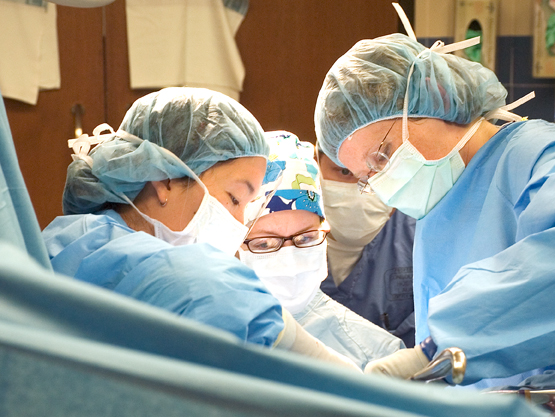 More than 40 million Americans are undergoing surgery every year. An estimated 35.8 million of them will immediately return home after having their surgery performed in a freestanding ambulatory surgery center or in a hospital-based outpatient setting. Another 7 million will be required to stay at the hospital after their surgery. While most patients fully recover from their surgery without problems some of them will suffer from surgical complications or errors. It is estimated that around 14% of surgical patients encounter at least one adverse event.
More than 40 million Americans are undergoing surgery every year. An estimated 35.8 million of them will immediately return home after having their surgery performed in a freestanding ambulatory surgery center or in a hospital-based outpatient setting. Another 7 million will be required to stay at the hospital after their surgery. While most patients fully recover from their surgery without problems some of them will suffer from surgical complications or errors. It is estimated that around 14% of surgical patients encounter at least one adverse event.
In a recent study, the ECRI and the Institute for Safe Medication Practices took a close look at surgical malpractice and analyzed 2,400 surgical adverse events that were recently reported to them. Among these 2,400 reported surgical malpractice events, researchers found that 1,561 of them were relevant. They found that 478 of them (31%) were complications related to the surgery, 460 (29%) of them were adverse events related to patient and operating room readiness, 377 (24%) were retained surgical items, 102 (6.5%) were contaminations, 80 (5.1%) were adverse events caused by equipment failure and 64 (4.1) were wrong surgeries.
To reduce these adverse events, the ECRI recommended the following strategies:
 Our managing partner, New York Personal Injury Attorney Ben Rubinowitz, will be speaking at the New York State Trial Lawyers Association webinar “DECISIONS 2020: Recent Developments in Tort Law”.
Our managing partner, New York Personal Injury Attorney Ben Rubinowitz, will be speaking at the New York State Trial Lawyers Association webinar “DECISIONS 2020: Recent Developments in Tort Law”. New York Personal Injury Attorneys Blog
New York Personal Injury Attorneys Blog









